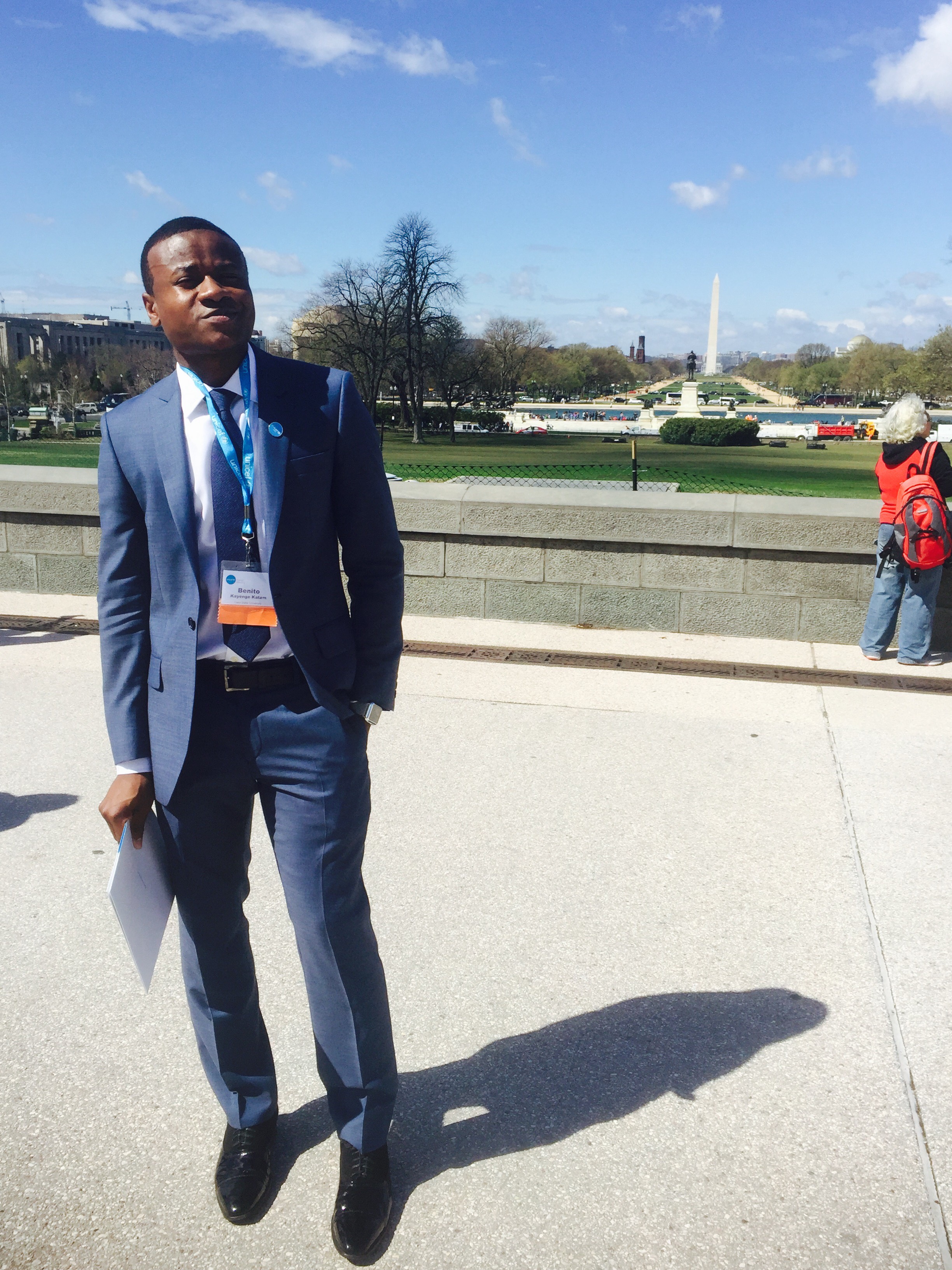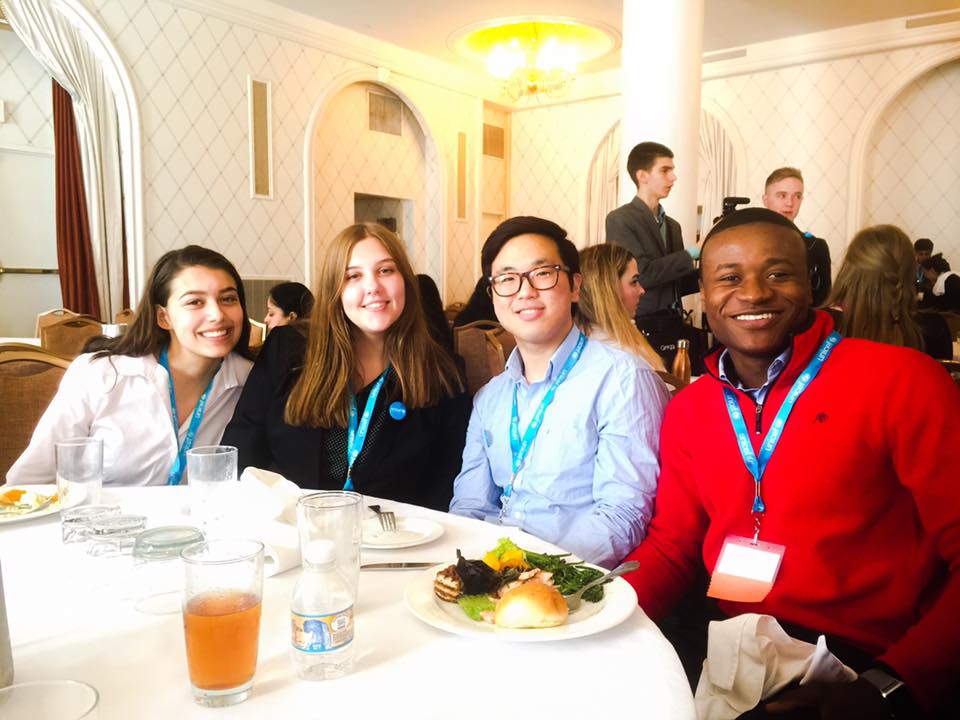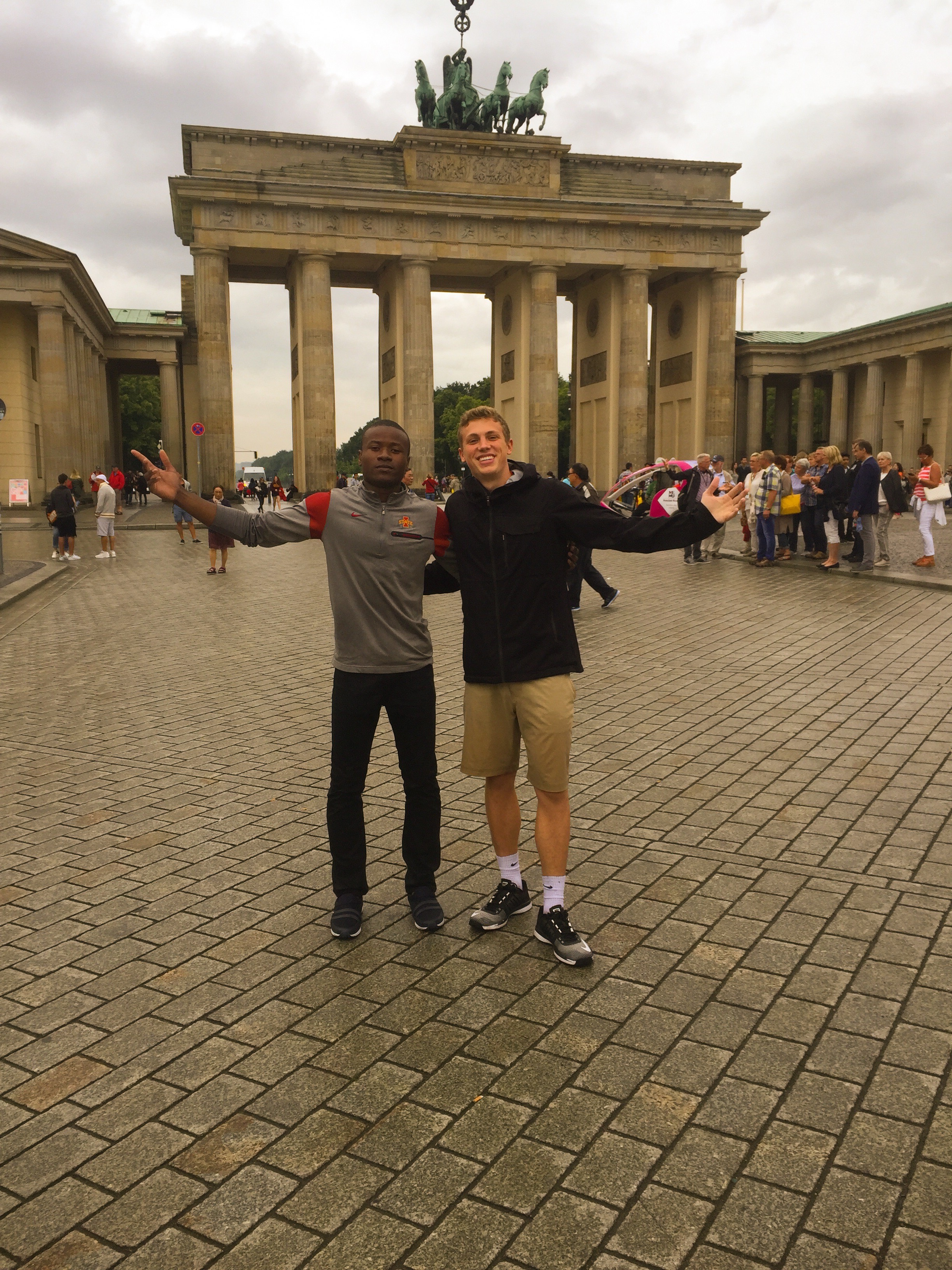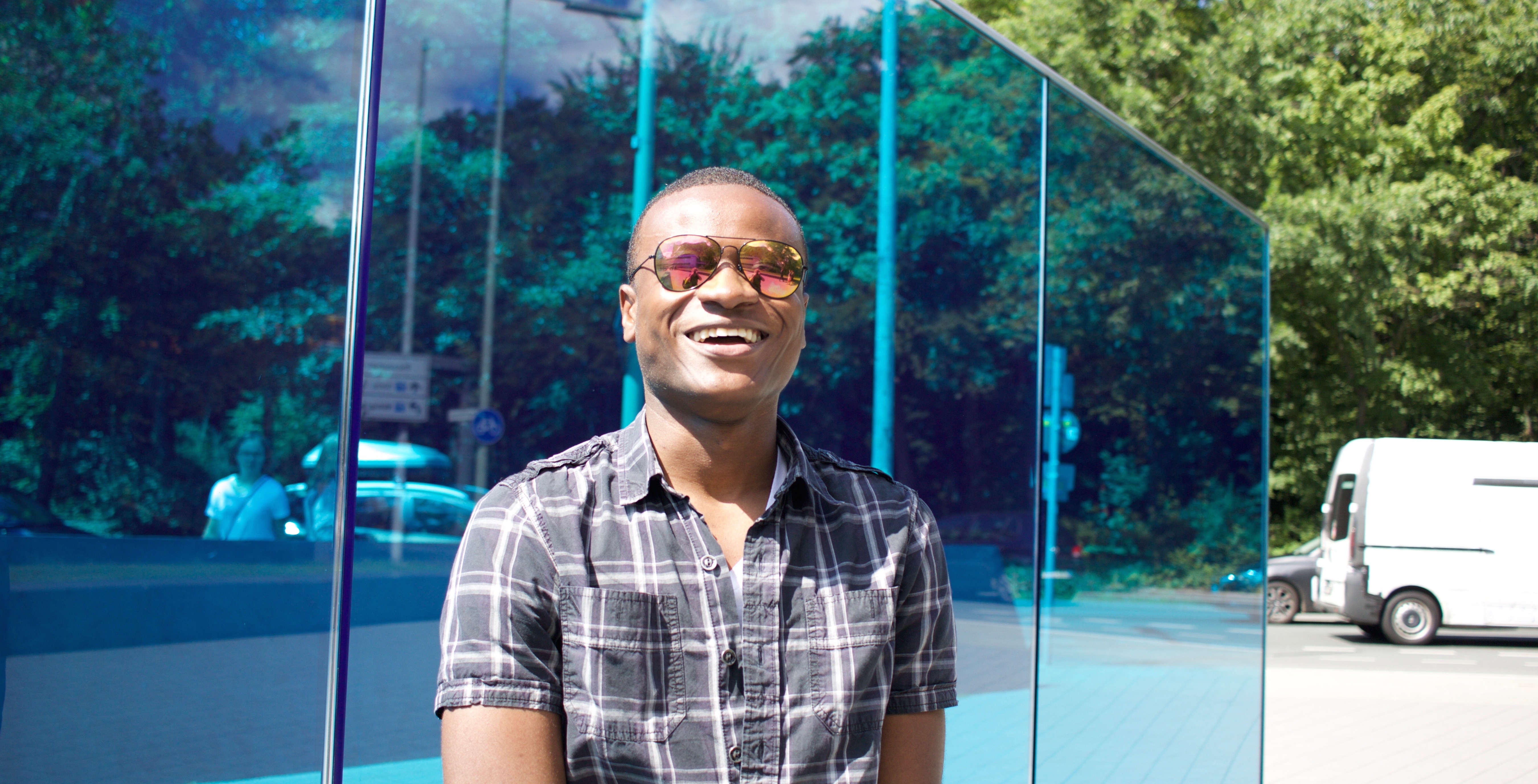From a young age in the Democratic Republic of Congo, Benito Kayenge (’18 economics) understood opportunity is precious.
“My dad traveled around the Congo on missions to help with cholera and Ebola outbreaks. He would come back with pictures and video showing us what was going on. That would shock me a bit.”
It also inspired him. Today, Kayenge has a life goal to follow his father in making the world a better place, and he is seizing opportunities to do it in the College of Liberal Arts and Sciences at Iowa State University.
‘The greatest school’
Kayenge moved to the United States at age 17 to further his education. He earned a U.S. high school diploma and then attended a Minnesota college for a year to improve his English. The college, however, primarily served working adults and lacked the valuable extras of student activities, study abroad and undergraduate research.
Today, Kayenge has a life goal to follow his father in making the world a better place, and he is seizing opportunities to do it in the College of Liberal Arts and Sciences at Iowa State University.
“I needed that young experience to interact with people my age and get involved in organizations and activities,” Kayenge said.
Everything he wanted was waiting for him just a few miles south down I-35. Kayenge had never heard of Iowa State, but a friend convinced him to check it out.
“[My friend] told me that Iowa State was the greatest school she had ever been to,” he said.
No matter that Iowa State was 7,000 miles away from where he grew up, or that he did not see the campus in person before enrolling. Kayenge took a virtual campus tour and saw something else: potential.
“It was the perfect university for me to evolve as a person and student,” he said, citing ISU’s welcoming environment and the opportunity to meet students from all backgrounds.

Pursuing a passion
Kayenge has since made the most of Iowa State—he has loved learning about macroeconomics, sharing his native French language with classmates in the Department of World Languages and Cultures and even performing in Cyclone Voice, a student vocal competition, three times.
But one student activity stands out: UNICEF at ISU, a student club of which he is currently president. In April, Kayenge and other club members attended the annual campus UNICEF meeting in Washington, D.C., and in August he trained in New York City as a National Council leader for UNICEF USA’s Campus Initiative.

Those missions Kayenge watched his dad go on while growing up? They were for UNICEF’s Water, Sanitation and Hygiene program in the Congo.
“I am really excited about this position because I have always wanted to be in a spot where I can promote UNICEF goals on a national level and save as many children’s lives as possible.”
More than miles
This year, Kayenge’s whole summer, not just his UNICEF leadership training, was a global journey to remember.
Just not the one he planned.
He cut short a 35-day trip to the Congo, his first visit home in five years, due to a brush with malaria and instability in the country. His dad encouraged him to visit family in Turkey and France while Kayenge waited for his Berlin Global Seminar, an LAS study abroad program, to begin in July.

All those travels, from visiting Berlin’s famed Brandenburg Gate and its Holocaust Memorial to spending a few unexpected days in Paris, taught Kayenge that global citizenship is not measured in miles.
“For me, being a global citizen is not just about traveling the world,” he said. “It’s not about just going to a place and taking pictures to say, ‘I was in Paris.’ It’s about going out, staying for a little bit of time, learning about that culture, learning what’s going on there, getting that culture in your head and mixing it with your own thoughts.”
“For me, being a global citizen is not just about traveling the world."
Ruxandra Looft, an academic advisor and lecturer in the Department of World Languages and Cultures who travels abroad with students, said a 'global citizen' or 'global professional' needs to be aware of their impact on the world around them. Through LAS' study abroad opportunities, they gain understanding in a broader sense, beyond their specific professional realm.
"We ask our students to take what they learn based on Germany's complex history and bring it to bear on their understanding of the world around them today," she said, referring to the Berlin study abroad program. "We also ask them to make those connections to their field of study."
She said that no matter their major or field on campus, students are challenged to think about how their discipline is shaped by cultural norms that are context-, place-, and time-specific.
"By the end of their time in Berlin, they have a better understanding of how world events in the past and present influence their particular field of study, and how their respective fields are shaped and influenced by the political and cultural ideologies that permeate the fabric of every profession and corner of life," she said.
Kayenge is still considering his plans after graduation—he is leaning first toward a graduate degree in economics. One thing is for certain: he will not let an opportunity to keep learning pass him by. In Kayenge’s world, every day, and every place, is a new chance to expand his horizons.
“Every day, I wake up and think, ‘What am I going to learn today?’”
